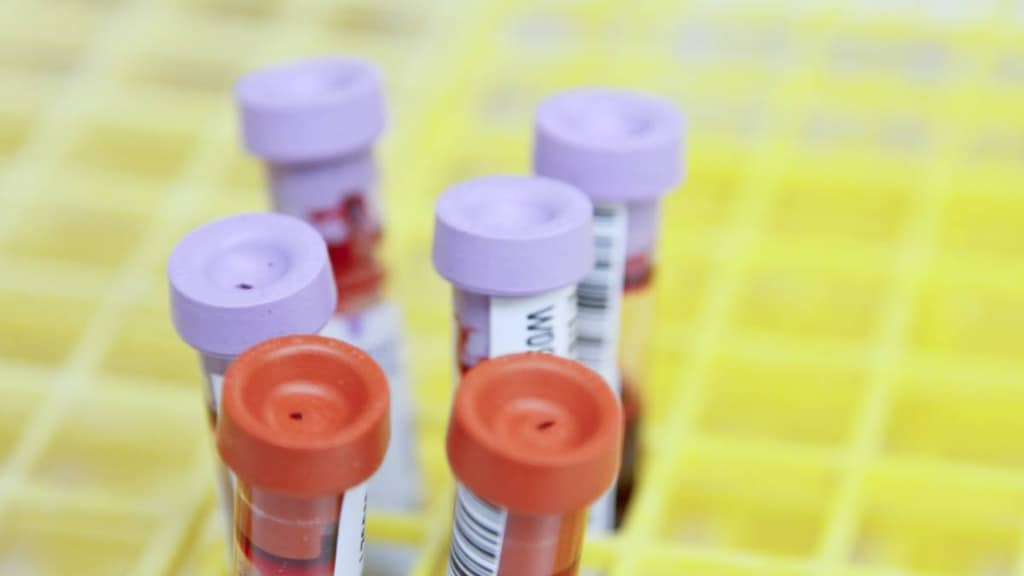Multiple Sclerosis: Early Warning Signs

Symptoms of multiple sclerosis (MS)—a lifelong disease of the central nervous system—can range from mild to severe. Most people have their first symptoms of MS between ages 20 and 40. The symptoms, though, vary from person to person.
The exact cause of MS is unknown, but it probably includes a number of factors. A key one of those is your body’s immune system, which normally defends against germs like bacteria and viruses. MS is considered an autoimmune disease because, with MS, the immune system mistakenly attacks your body's healthy tissues instead of germs. MS affects the fatty outer covering, called myelin, that protects your nerves.
These immune system attacks on the myelin in your central nervous system cause the damage that leads to MS symptoms. MS is an unpredictable disease, and almost any symptom can happen at any stage of the disease. MS symptoms can come and go as well as change over time. But some common symptoms do tend to occur earlier than others, and it's important to know the early warning symptoms of MS to get a diagnosis as soon as possible. There are many effective treatment options, and they work best when started before permanent damage occurs.
Early symptoms of multiple sclerosis
A condition called optic neuritis is often the first sign of MS. Optic neuritis may cause symptoms such as blurred vision, double vision, color distortion or blindness in one eye. It may also be painful to move your eye. Like other MS symptoms, these eye symptoms may go away as suddenly as they started.
Other common or early symptoms include:
- Numbness and tingling. Numbness may affect the face, body, arms or legs, and tingling may be described as a feeling of “pins and needles.” Both may be first symptoms of MS.
- Fatigue. About 80 percent of people with MS experience fatigue severe enough to limit activities and interfere with work or school.
- Muscle weakness. Weakness often happens in both the arms and legs.
- Bladder problems. This symptom affects about 80 percent of people with MS. You may feel like you have to pass urine often, or you may feel like it's hard to pass urine.
- Walking problems. Weakness, loss of balance and fatigue can all cause unsteadiness while walking and sometimes while standing.
- Pain or itching. More than half of people with MS have pain or itching, often in the same areas as tingling and numbness.
- Cognitive changes. Cognitive symptoms affect about half of people with MS, appearing as difficulty concentrating and focusing. These symptoms may make it hard to problem solve or remember things. Cognitive changes may also include symptoms of depression.
Other possible symptoms of MS include:
- Muscle stiffness or spasms. These are most common in the legs but can affect any limb.
- Dizziness, either feeling lightheaded or having the sensation of spinning (vertigo).
- Sexual problems, such as a decreased sexual response
- Constipation or loss of bowel control
- Mood swings, emotional changes (often feeling like laughing or crying) and irritability
- Speech problems, such as slurred speech or loss of volume in the voice
Less common symptoms of MS can also be early warning symptoms in some people. These include:
- Difficulty talking or swallowing
- Tremors
- Seizures
- Breathing problems
- Hearing loss
From symptoms to diagnosis
MS can be hard to diagnose. Early symptoms tend to be mild and come and go, making them easy to miss or ignore. Another challenge is that there's no single test doctors can use to diagnose the disease. If your regular doctor is concerned that you may have MS, it's best to see a specialist who treats nerve diseases (a neurologist) for a comprehensive exam.
A neurologist will take a careful history of your symptoms and do a neurological exam. You will also have an imaging study (MRI) of your central nervous system to look for very specific signs of the disease. The neurologist will use the MRI to:
- Check for noticeable damage (MS lesions) in at least two different areas of the central nervous system, including the brain, spinal cord or optic nerves
- Determine that the MS lesions developed at different points in time
- Rule out all other possible causes of your symptoms
You need to meet all three of these conditions to get an MS diagnosis. You may also have blood tests or testing of your cerebrospinal fluid to rule out other conditions that cause symptoms similar to those of MS.
Although there's currently no cure for MS, many new medications—known as disease-modifying drugs—are now available to manage symptoms and slow the progression of the disease. This means most people with MS can expect to lead full and active lives.
Article references
- NIH, Multiple Sclerosis Information Page https://www.ninds.nih.gov/Disorders/All-Disorders/Multiple-Sclerosis-Information-Page
- National Multiple Sclerosis Society, MS Symptoms https://www.nationalmssociety.org/Symptoms-Diagnosis/MS-Symptoms
- Multiple Sclerosis Foundation, Early Signs and Symptoms of MS https://msfocus.org/Magazine/Magazine-Items/Early-Signs-and-Symptoms-of-MS
- National Multiple Sclerosis Society, Diagnosing MS https://www.nationalmssociety.org/Symptoms-Diagnosis/Diagnosing-MS
- National Multiple Sclerosis Society, Newly Diagnosed https://www.nationalmssociety.org/Symptoms-Diagnosis/Newly-Diagnosed




